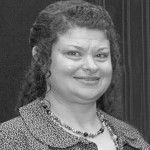Professors offer election perspectives
November 5, 2012
Mekel said she is interested in the amount of international attention paid to the election. She said she has lived in Canada and Bangladesh.
“It strikes me as very interesting how individuals from other parts of the world are more interested in our politics and in the election than many people in the United States,” she said. “As long as I have lived in other places, that has been the case.”
Mekel said she thinks Bangladesh citizens are more interested in the U.S. election than their own electoral process.
Advertisement
While early voting has helped the polls and many people who couldn’t take time on Election Day to vote, Mekel said she thinks it has taken away the population’s sense of, “You must go vote today.”
“I think some people choose not to vote as a matter of protesting the system,” she said. “I also think that those who understand that this system is a republic, not a democracy, choose not to vote because they feel they don’t really have a voice, that it is truly a function of the Electoral College process.”
She said she thinks this election is business as usual as opposed to Obama’s “Hope” campaign during the 2008 election.
“We had a campaign that was run on the concept of hope,” she said. “We had a lot of momentum for the Democratic party.”
Headrick said he thinks the 2012 presidential race will be very close.
“I think you’ll see, potentially, the decision based on less than even a million votes,” he said. “In my opinion, it is too close to call.”
Both campaigns did a good job, Headrick said, but the nation won’t see the same turnout ratios as the 2008 election, when there was a lot of enthusiasm for Obama.
Advertisement*
He said Romney may have an edge because of the smaller ratios.
“The ratio of the African-Americans or Latinos or Hispanics will not be as high this time as it was in 2008,” he said. “2008 was an unusual year, and so I think this election the ratios will be somewhere between (where they were) in 2004 and 2008.”
Headrick said some people complain about how dirty the campaigns can get, but that’s just part of the process.
“At the end of the day, it’s a presidential campaign,” he said. “You’re in the NFL. You’re in the Super Bowl. It’s a contact sport, so you have to expect some of that.”
Recent national events have also played a role in the election, he said.
“I think that the superstorm (Sandy) has played a role in taking the election off people’s minds,” he said. “I wouldn’t go one way or the other.”
Pearson said he’s growing tired of the election season.
“I’m tired of all the negativity that has been put out there,” he said. “I don’t think any candidate has done a good job promoting their strong suits.”
Pearson said Obama’s vision is old-fashioned and not right for the country, and while Romney has more of an overview of what we need, he’s not committed to a specific vision.
“I’m cynical,” he said. “I’m not sure either one is going to be able to turn the economy around in the next four years.”
Pearson said he is frustrated because Illinois is almost guaranteed to give its electoral votes to Obama, so he doesn’t believe his vote will count. His main reason for voting will be for the local elections, he said.
“It’s an interesting process, and I wish more people would actually take an interest in the elections,” he said. “It’s so easy to just get burnt out since it starts so early.”
Pearson said he’s paid more attention to the election because it will be a close race, and he’s not sure who is going to win. However, he said he thinks Romney will have a chance depending upon whether he can gain Ohio’s electoral votes.
“Will I be watching TV anxiously? No,” he said. “Will I check the news later? Yeah, to see who they are projecting to win. But it’s just frustrating.”
Advertisement







